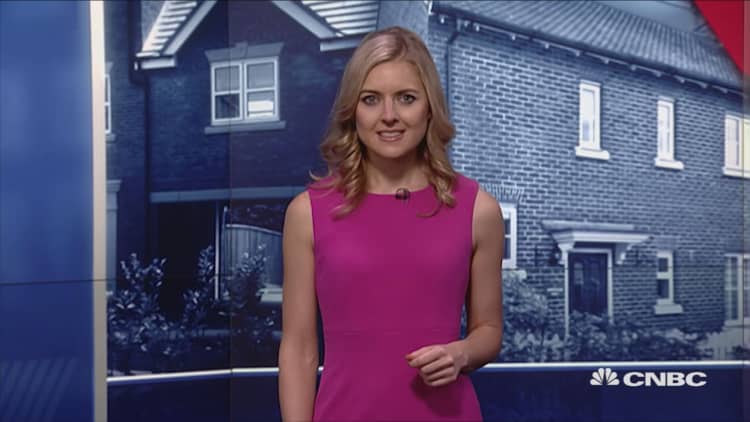
It might be a "safe haven" for foreign investment, but the London property market has seen many analysts warn of an impending free fall as prices seemingly surge ever higher.
It's not helped by a lot of conflicting noise coming out of the market as slicing and dicing data different ways reveals very different results.
CNBC spoke to key data providers to unearth the key trends, and highlight what you really need to know about one of the most lucrative property markets in the world.
Slowdown?
Yes, there's a slowdown underway but it's currently largely reflected in a big drop off in transaction volumes rather than across-the-board price cuts. The pullback in sales was widely anticipated after many purchases were rushed through to beat the latest policy change on stamp duty (a levy on purchases) which was implemented by the U.K. government on April 1.
The concern is if the gummed-up market persists, anxious sellers and agents could start aggressively dropping prices, potentially causing a negative downward spiral.
Within this broad brushstroke, there are nuances, however. Sales of existing inventory are holding up moderately better than those of new builds. One key factor, however, is lack of affordability – an issue throughout London but particularly concentrated in certain areas.
According to Lloyds Banking Group's Housing Economist, Martin Ellis: "London is the only part of the U.K. where mortgage payments are above their long-term historical average as a proportion of take-home pay."
Outer London over central?
This is feeding through to propagate the buoyancy of outer London versus central London. According to Simon Rubinsohn, chief economist at the Royal Institute of Chartered Surveyors (RICS): "The critical issues for buyers remains the availability of finance and the price point which explains why the cheaper boroughs particularly in the east are now attracting most interest."
RICS' perspective is echoed by Hamptons' Residential Research Director, Fionnuala Earley, who told CNBC: "Markets in cheaper prime fringe locations like Hammersmith to the west and Wapping to the east are busiest. Here prices have risen more slowly, higher stamp duty rates have had a smaller impact and areas have increasingly been able to trade on an improving reputation and the prospect of future growth."
Prime suffering
In terms of central London, prime property continues to suffer the most – indeed the slowdown there began to translate into falling prices a couple of years ago. Recent developments have only exacerbated the incentives for international buyers – a key support group for this niche – to flee.
Global economic weakness, currency movements and a tightening of policies particularly directed at those who don't live in their properties are among the key drivers of this trend. About half of those surveyed anticipate the U.K. government's vocal new stance on stamping out corruption and increasing transparency of property ownership will cause London's appeal for international buyers to slide yet further.
'Brexit' vote looms
And all this with the binary "Brexit" vote looming. In the words of Propcision co-founder, Michelle Ricci: "It seems almost incredulous the government didn't recognize that a sensitive political vote, such as 'Brexit', could have a natural subduing effect on the housing market thereby making any aggressive succession of tax changes unnecessary."
Indeed, analysts were united in agreement that "Brexit" now is the worst possible outcome for the house prices given the inevitable years of uncertainty it would trigger. A narrow win to the "remain" camp would still prove detrimental as it could lead to the prospect of further uncertainty down the track, according to the analysts.
The general sense is that the impact of the upcoming "Brexit" vote to date has been only moderate, however, as articulated by Adam Challis, head of residential research at JLL: "The mainstream residential market is broadly undeterred by the EU referendum, although the risks of leaving the EU are becoming a bigger concern."
A slowdown, however, must not be confused with negative growth in the London market as a whole. Which is why the result will be so critical to the housing market, even if only some of Prime Minister David Cameron's dramatic warnings about the consequent economic Armageddon materialize. According to Richard Donnell, insight director at Hometrack: "What history shows is that as long as the economy growth and creates jobs than we are unlikely to see nominal year-on-year prices falls."
Nonetheless, the slowdown is seen by the vast majority of commentators as persisting across London at least well into next year. And prime central London's recovery is expected to be even more timid.
"The catalysts for (the slowdown) were the stamp duty changes of December 2014 and the 3 percent surcharge for additional homes ... It is likely to be another couple of years before the market fully absorbs these and we see a return to trend rates of price growth in this sub-market," said Savills' Head of U.K. Residential Research, Lucian Cook.










